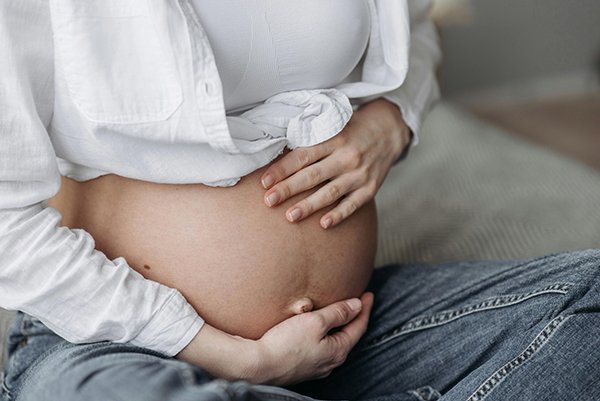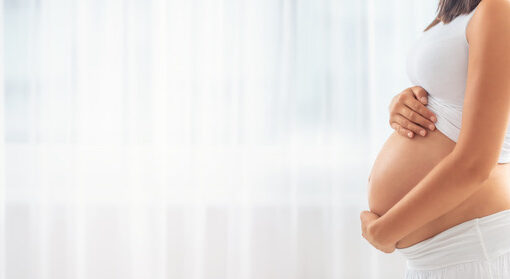Umbilical hernias occur more frequently during pregnancy. Many women ask themselves when they should have this surgery.
Umbilical hernia during pregnancy
Around 25% of women of childbearing age have an umbilical hernia - it often goes unnoticed. Pregnancy, in which the pressure on the abdominal wall increases from the second trimester onwards, often leads to a protrusion of the navel. The abdominal wall becomes unstable due to the pregnancy-related softening of the abdominal muscles. This promotes the formation of hernias. As the belly button is a general weak point in the abdominal wall, this area is predestined for a hernia, especially during pregnancy or if you are very overweight. Additional risk factors are the increasing number of pregnancies, abdominal dropsy, significant weight loss or weak connective tissue.
Symptoms of an umbilical hernia
An umbilical hernia is indicated by a bulge in the navel, which is usually between 1 cm and 5 cm in size. Particularly in the second half of pregnancy, the navel can protrude outwards. In general, the hernia should not cause any pain. Slight pain may occur when coughing or lifting heavy loads. Small umbilical hernias that have formed during pregnancy can often disappear on their own after the pregnancy. Postnatal gymnastics and training the abdominal muscles have a beneficial effect.

When is an umbilical hernia an emergency?
If there is intestinal tissue in the hernia sac of the hernia, this is an emergency, as parts of the intestine are then cut off from the blood supply and are no longer properly supplied with blood. Colic-like pain often occurs and the abdomen is sensitive to pressure. Sometimes the area around the navel becomes bluish in color. The patient may also suffer from fever, nausea and vomiting. In this case, you should call us immediately or go to a hospital emergency room.
When does an umbilical hernia in women need to be operated on?
Many women affected by an umbilical hernia ask themselves whether they should have it operated on and when the right time is. Should it be done before a planned pregnancy? Or is it better to wait until after the current pregnancy? Your doctor can often determine whether or not you have an umbilical hernia by palpating your abdomen. Sometimes the ultrasound device is also used for diagnosis. The doctor checks whether the hernia can be pushed back. Statistics show that in 56% to 73% of women who had an umbilical hernia operated on before pregnancy, a new hernia (recurrence) occurs in the next 10 years. For this reason, doctors recommend waiting until after family planning is complete before having an operation. During pregnancy, surgery is generally only performed in an emergency, i.e. if the hernia is causing pain or if intestinal tissue has become trapped in the hernia sac. Such an operation can usually be performed in the day clinic and, if desired, under local anesthesia. In most cases, the hernia gap is closed with a simple suture, as the use of a plastic mesh during pregnancy could lead to more severe abdominal wall pain.
After a pregnancy, you should wait at least 6 to 12 months before having the hernia operated on. During this time, the hernia and any rectus diastasis can heal on their own. Once the last planned pregnancy has been completed, the hernia only needs to be operated on if it is troublesome, causes pain or becomes larger. Otherwise, you can wait as long as you like before having an operation. If a rectus diastasis has developed during previous pregnancies that cannot be reduced by training alone, this can be repaired at the same time as the umbilical hernia is surgically repaired.
Andere Beiträge
For successful treatment, it is important that these are quickly closed surgically before internal organs become trapped or the weak spot can open up further.
Men who play sports intensively or even practice a sport professionally complain about groin pain time and again.
Rectus diastases are often the result of pregnancy or massive weight gain.




